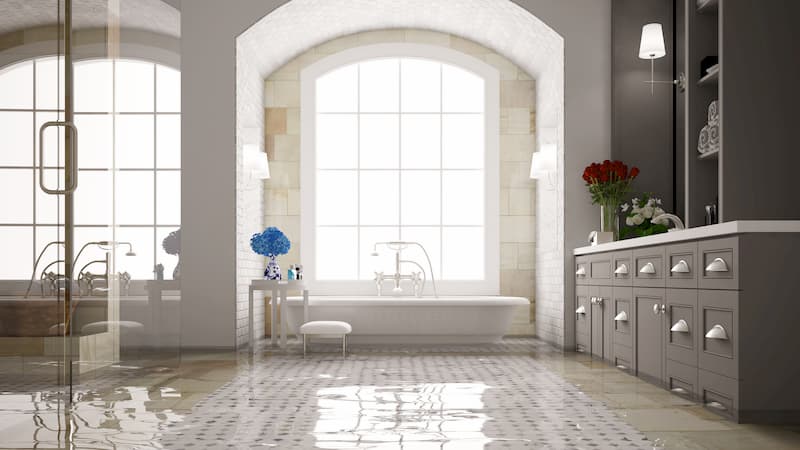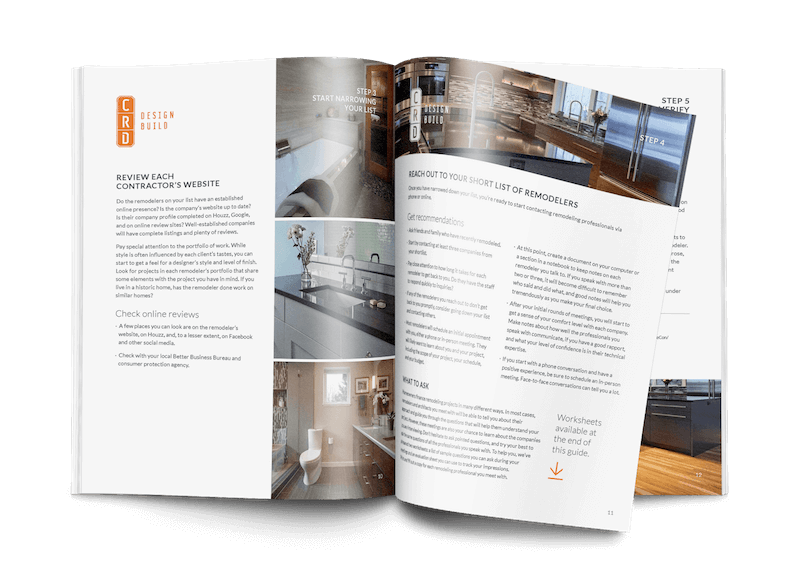
Household water leaks can be costly and even catastrophic if not addressed immediately. Water damage can be caused by pipes freezing and bursting, toilets or sinks leaking, pipes bursting, and even refrigerators leaking. Over time even small leaks can cause flooding in a home and extensive damage. A leak will likely need to be stopped by a licensed plumber, but it could also require costly foundation repairs or mold remediation. For the most extensive repairs and remediation, you may have to move out of your home for a while.
But you don't have to wait until a leak gets out of hand and causes costly damage. The key is to catch tiny leaks before they become big problems. As a homeowner, you can do quick monthly inspections and repair small drips immediately. Here are five of the most common sources of water leaks in homes to help you pinpoint where to look for damaging drips and stop them in their tracks.
See also: Mold 101: What To Do if You Find Mold in Your Seattle Home
Water supply leaks
The water supply lines run between the water meter and the home, and leaks in the supply lines are often difficult to find since the lines are buried in the ground. Leaks can occasionally be detected by checking for standing water around the meter itself or checking for pools of water near the location that the line rises from the ground to enter the home. A visual inspection for consistently moist soil along the path of the water lines is also a sign that a line has burst and needs to be repaired. Likewise, if you notice a big, unexplained bump in your monthly water bill, it may be an indication that you have a hidden water leak. If you spot any of these telltale signs, I suggest you contract a licensed plumber to dig the lines up and repair them.
See also: 10 Steps to Deal with a Burst Pipe and a Flooded House
Drain leaks
Drain leaks can be difficult to find since they are often hidden from view. For instance, when a shower drain is leaking, it can go undetected for long periods of time, since it is located behind a wall or beneath the floor. Sink drains are easier to spot, but unless they are checked frequently, or you notice water pooling near the sink, they can also go undetected for a while. When water has been leaking and not taken care of, it can lead to damaged walls, floors, and more. For upper-level bathrooms, check the ceiling on the ground floor beneath the shower for any signs of water damage and investigate right away. You will likely be able to find a sink leak yourself, but you may need to call in a plumber to assess and fix a shower drain leak.
See also: Maintenance Checklist: Your Home's Interior
Rainwater or snow leaks
Excessive rainwater or snow on a roof can cause leaks into the attic or crawlspace that can enter the walls of a home. If not detected in time, the water can cause mold or mildew as well as dangerous damage to electrical wiring. Hire a licensed roofing contractor to do a thorough inspection every two to three years, and do a simple DIY inspection annually to check for signs of missing or loose shingles, damaged gutters, or debris on the roof. Climb up into your attic periodically to look for any signs of water drips or staining. The underside of your roof should be completely dry.
See also: Wet Basements 101: How to Dry Out That Leaky Basement for Good
Groundwater leaks
Groundwater leaks, or seepage, occurs when heavy rain or snow soaks into the ground. When the water table rises to the foundation, it can cause cracks and leaks that can damage the foundation, collapse retaining walls, and even seep into basement-level windows or doors. Many basements are equipped with a pump that will help pump groundwater and flood water out and away from the basement. If you notice cracks in the basement floor or in the bricks around the foundation of the home, it is time to call in a foundation specialist to inspect and repair the damage.
See also: Intro to Basement Drainage Systems
Appliance leaks
Dishwashers and washing machines are known for springing leaks that can go undetected for lengthy periods of time. This is due to water spilling near the appliance or the leaks hidden from view underneath the appliance. These appliances can shift from one spot to another during regular use and should be inspected on a regular basis to ensure there is no water leaking around the base or near the back where the water hoses are attached. If you spot signs of a leak, shut the water off and check the hoses for signs of cracks or holes. If it is the appliance itself that is leaking, it is best to contact an appliance repair contractor to repair or replace the appliance.
See also: How to Pick Kitchen Appliances for Your Remodel
If you find a small leak in your home and can fix it on your own, be sure to shut the water off before gathering supplies to make the repair. For larger leaks, you need to turn the water off and contact a licensed plumber to handle the repair work to ensure it is completed correctly to prevent further leaking and potential catastrophic damage to your home.
Starting a remodel
If you are planning to remodel your home, a good place to start is with a licensed contractor or designer. Our team here at CRD has decades of experience renovating older Seattle homes and will handle all the details to keep you and your family safe during and after the remodel. If you are interested in discussing your unique situation, please don't hesitate to get in touch.
Note: We make no claims or warranties as to the completeness or accuracy of the information on this page. We encourage you to confirm all information you read here and consult a roofing , plumbing, or appliance professional. Any action you take based on the information on this website is strictly at your own risk.
Guide to Hiring a Remodeler
This comprehensive guide walks you through all the steps of choosing who will design and build your project, vetting remodeling companies, and ensuring that you have the best experience.



